French artisan perfumes: a new market of personalised scents
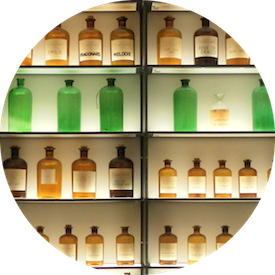 France has long been considered the home of perfume, boasting classic names such as Chanel, Dior and Jean-Paul Gaultier. However, the fragrance market is slowly changing.
France has long been considered the home of perfume, boasting classic names such as Chanel, Dior and Jean-Paul Gaultier. However, the fragrance market is slowly changing.
In Europe, mass perfume brands and celebrity scents are falling out of favour while artisan perfumers are becoming more popular.
Niche industries are joining the market, providing artisanal and natural scents for those looking for something unique.
Scent enthusiasts are trying their hand at perfume making in their homes, and perfumes can be personalised to suit an individual’s taste.
So, how has this new market evolved and what alternatives are there to big brand fragrances? And what do French artisan perfumes offer?
French artisan perfumes: quality and a more personal touch
In France, independent perfume boutiques are resisting competition from chains like Nocibé. ‘Artisan’ has become a word that is associated with quality.
Annick Goutal, an artisan perfumery in Paris, has its own in-house perfumers and the scents and packaging are all made in France. The fine detail of the perfume bottles is finished by hand, and the boutique claims that each evocative scent will “take us on a journey”. For example, the perfume ‘Un Matin d’Orage’ evokes the fragrance of a “gardenia in the mist of a stormy morning”.
Frédéric Malle, grandson of Serge Heftler-Louiche, who founded Parfums Christian Dior, introduced Editions de Parfums in 2000. Editions de Parfums offers fragrances composed by the world’s greatest noses, sold under their own names. Malle looks for perfumes that have been designed “to uniquely merge with the wearer’s skin” as perfumes smell different on each individual.
Isabelle Michaud is an artisan perfumer, whose ‘Eau de Céleri’ was recently awarded the Art and Olfaction Awards in Los Angeles for the artisan category. Michaud believes that niche perfumery is “so much more personal” than the big brands.She explains that while commercial perfumers create products based on their focus groups, independent perfumers compose fragrances that eflect their personality, regardless of the market.
She has also noticed that there is a growing interest in artisan perfumes, similar to the interest in local wine and agricultural produce.
The rise of artisan perfumes today
One reason for the current popularity of artisan perfumes could be related to the growing distrust in big brands.
A 2010 study suggested that many popular perfume brands do not list harmful ingredients on their labels. These ingredients have been linked to sperm damage, hormone disruption and allergy problems. Chemicals that could play a role in cancer were also found in many of the fragrances analysed.
Hence, many people are turning to natural, non-toxic perfumes. These often contain the health benefits of essential oils.
Another reason could be that, in the present day, at a time where individuality is everything, people are no longer inclined to smell like everyone else.
For Luca Turin, biophysicist and co-author of ‘Perfumes: the A-Z Guide’, scent is something personal, which can be worn to make a statement about who you are. In Turin’s view, “perfume is not a smell. It’s a message in a bottle.”
Can a scent be personalised?
While big brands such as Sephora will only personalise the perfume bottle, smaller perfume businesses will personalise the scent.
For example, Lynn Harris at Miller Harris in London promises to find you your soulmate scent within six months – but this comes at a price. This bespoke service costs 6000 GBP, but guarantees your perfect perfume created by Lynn herself, who was classically trained in Paris and Grasse.
All perfume is personal to le Nez because it depends on the emotions he is feeling when he creates the scent.
So can a scent be personalised to suit the tastes of a client? Apparently so. When I posed this question to Déborah, a perfume expert at the Fragonard museum in Paris, she answered in the ambiguous yet evocative way that the French often do: “all perfume is personal to le Nez because it depends on the emotions he is feeling when he creates the scent.”
The Fragonard museum runs its own Eau de Cologne personalisation workshop, which covers the history of perfume, sensory and olfactory memory development and the fragrance pyramid.
In The Guardian, journalist and fragrance aficionado David Shariatmadari describes the moment he fell in love with perfume: “it all started with an article by Brian Eno in this newspaper, many years ago.” The article referred to the chemical methyl octine carbonate, which Shariatmadari says was described by Eno as “[evoking] the smell of violets and motorcycles. Dior’s Fahrenheit uses a lot of it”.
Shariatmadari continues: “That stopped me in my tracks. How could something smell like flowers and engine oil at the same time? My dad had a bottle of Fahrenheit and I ran upstairs to find it. Unscrewing the bottle, I inhaled and there it was: the essence of violets and motorcycles.”
Being able to tell the raw materials of a perfume apart means you can put them together with others, and personalise your own perfume. Perfumery courses that teach this skill are becoming more common.
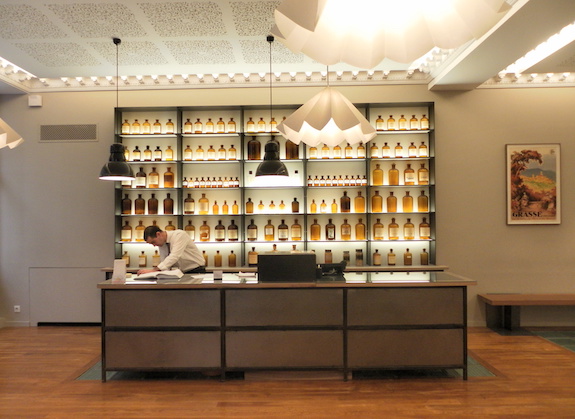
French perfume maker Katia Apalategui has even come up with the idea of bottling the scent of deceased loved ones, with the help of the University of Havre. “We take the person’s clothing and extract the odour – which represents about a hundred molecules – and we reconstruct it in the form of a perfume in four days,” said the university’s Geraldine Savary. “The powerful link between smell and memory means the product offers ‘olfactory comfort’.”
Homemade and natural fragrances
You don’t have to be a professional to make perfume. Creative entrepreneurs all over the world are now selling their homemade scents online. Scents are often organic or vegan and can come in the form of a spray, a roll-on oil or a solid.
Touches de Parfum is an artisan perfume studio in the Basque Country offering custom-made perfume using 100% natural and biodegradable ingredients. Alquemie, an online perfume boutique, sells fragrances inspired by the owner’s memory of places such as the Fiji Islands of her childhood and visiting Paris with an old lover.
France may no longer be considered the home of perfume, but it is clear that a new niche has been created. Big brands are facing competition from fragrances that are not only less expensive, but better quality, more environmentally friendly with less health impacts and, if you feel so inclined, personalised.
Perfume courses in Paris
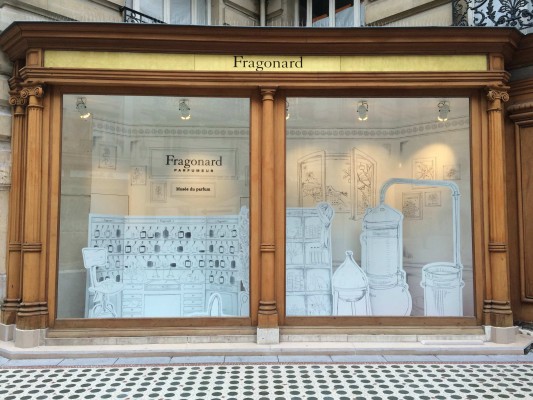
1. Cinquième Sens offers a range of perfume courses and workshops, from fragrance creation to the techniques and language of scents. You can see their brochure here.
Address: 18 Rue de Montessuy, Paris 75007Métro: Ecole Militaire
2. Le Studio des Parfums has a design your own scent workshop, where you can build your own fragrance under the supervision of a perfume expert. The studio will even keep your created recipe so you can order re-fills of your one-of-a-kind scent!
Address: 23 Rue du Bourg Tibourg, Paris 75004Métro: Hôtel de Ville
3. The perfume making workshop at Candora can be held in their studios, at your work or even your own home.
Address: 6 Avenue Franklin Roosevelt, Paris 75008Métro: Franklin D. Roosevelt or Saint-Philippe-du-Roule
4. Fragonard’s eau de cologne workshop covers the history of perfume, sensory and olfactory memory development and the fragrance pyramid.
Address: 9 Rue Scribe, Paris 75009Métro: Opéra
What do you think about the changing face of the perfume industry in France? What are your favourite French artisan perfumes? Share your thoughts below!
All images © Stephanie Williamson.

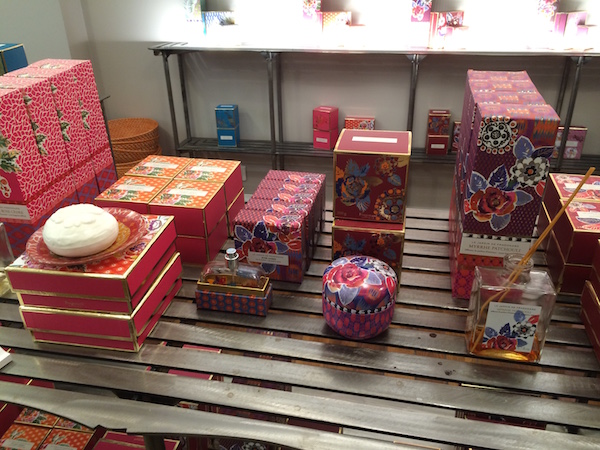
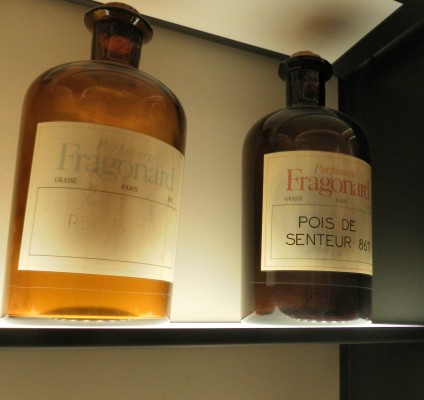
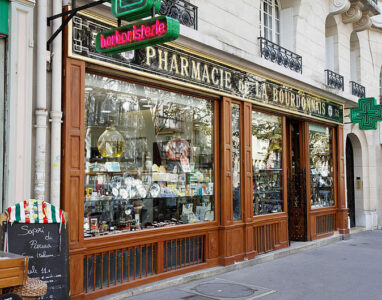
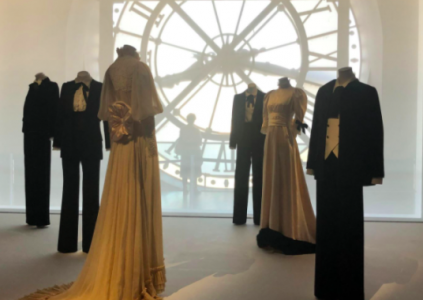
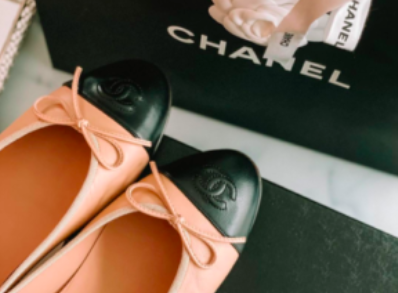



Is there any possibility to be linked to an artisan to produce scents and perfumes for my business?